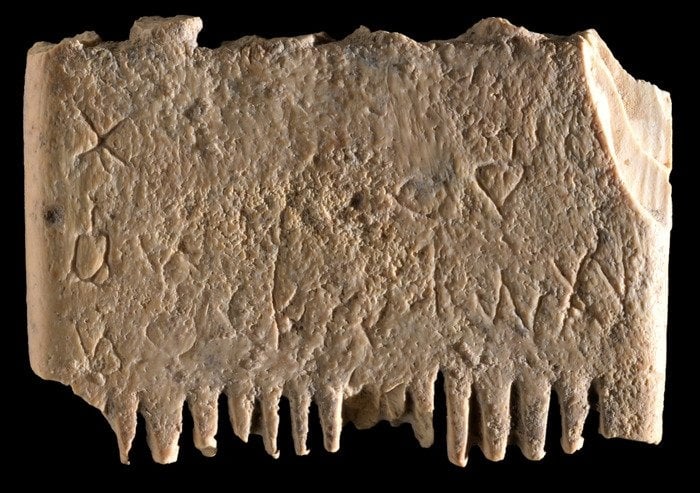
The first phonetic alphabet — where each symbol stands for a certain sound — is credited to the Canaanites. They lived in the Eastern Mediterranean over 2000 years ago. Over the years, archaeologists have found some of these symbols on old pottery pieces. Now, they have discovered the oldest complete sentence written in this alphabet on an ancient lice comb.
The pocket-sized comb measures less than 1.5 inches long (3.8 cm) and 1 inch (2.5 cm) tall. It had fourteen thin teeth to rid hair of lice on one side and six thicker teeth to untangle hair on the other. The artifact was unearthed in 2016 from an Israeli archaeological site called Lachish. However, it was not until 2021 that Madeleine Mumcuogle, a research associate at the Hebrew University of Jerusalem, noticed the tiny engraved letters on the base of the comb.

Closer examination revealed that the seven words formed a complete sentence in Canaanite. It roughly translates to, "May this tusk root out the lice of the hair and the beard." The researchers could not determine the exact date of the comb. But based on other artifacts found in the area, they estimate it to be about 3,700 years old.
"Nothing like this was found before. It's not the royal inscription of a king … this is something very human. You're immediately connected to this person who had this comb," said archaeology professor and study co-author Yosef Garfinkel.
Resources: CNN.com, Livescience.com, Smithsonianmag.com